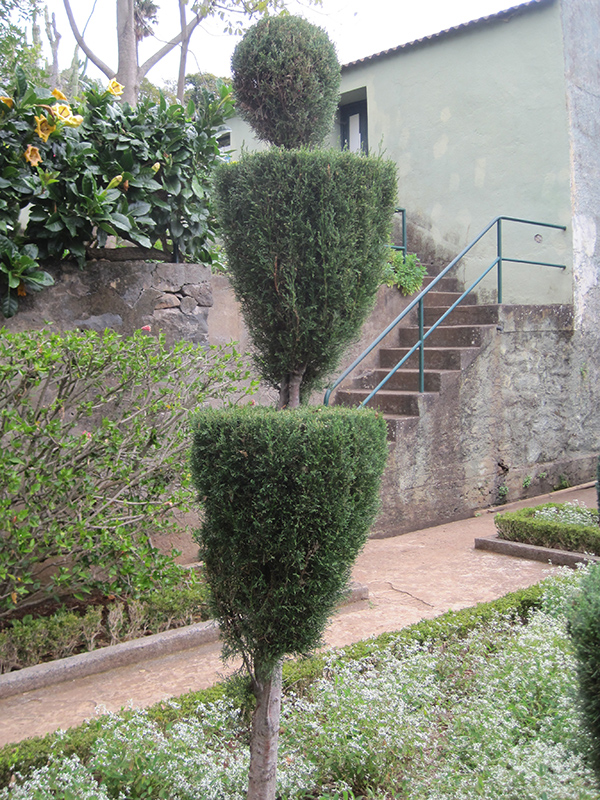Italian Cypress Topiary Cupressus sempervirens (topiary) Height: 10 feet Spread: 3 feet
Sunlight:
Hardiness Zone: 7a Description: A vigorous shrub shaped into an expressive form, with exceptionally dense blue-green foliage; very slow growing; makes a wonderful container specimen or a dramatic accent on the landscape Ornamental Features Italian Cypress Topiary is a dwarf conifer which is primarily valued in the landscape or garden for its rigidly columnar form. It has attractive bluish-green evergreen foliage. The scale-like sprays of foliage are highly ornamental and remain bluish-green throughout the winter. Landscape Attributes Italian Cypress Topiary is a dense multi-stemmed evergreen shrub with a narrowly upright and columnar growth habit. It lends an extremely fine and delicate texture to the landscape composition which can make it a great accent feature on this basis alone. This is a relatively low maintenance shrub, and is best pruned in late winter once the threat of extreme cold has passed. Deer don't particularly care for this plant and will usually leave it alone in favor of tastier treats. It has no significant negative characteristics. Italian Cypress Topiary is recommended for the following landscape applications; Planting & Growing Italian Cypress Topiary will grow to be about 10 feet tall at maturity, with a spread of 3 feet. It has a low canopy, and is suitable for planting under power lines. It grows at a slow rate, and under ideal conditions can be expected to live for 60 years or more. This shrub should only be grown in full sunlight. It prefers dry to average moisture levels with very well-drained soil, and will often die in standing water. It is not particular as to soil pH, but grows best in sandy soils. It is somewhat tolerant of urban pollution. This species is not originally from North America. Italian Cypress Topiary makes a fine choice for the outdoor landscape, but it is also well-suited for use in outdoor pots and containers. Its large size and upright habit of growth lend it for use as a solitary accent, or in a composition surrounded by smaller plants around the base and those that spill over the edges. It is even sizeable enough that it can be grown alone in a suitable container. Note that when grown in a container, it may not perform exactly as indicated on the tag - this is to be expected. Also note that when growing plants in outdoor containers and baskets, they may require more frequent waterings than they would in the yard or garden.![]()
![]()
![]()
![]()
![]()
![]()
![]()
![]()
![]()
![]()
![]()
![]()
![]()
![]()
top of page
Louie's Nursery Menifee - Plant Finder
Characteristics
Applications
Features & Attributes
This tool is an online resource representing many of the varieties that we carry over the course of the season, and is intended for informational purposes only. Inventory varies seasonally, so we cannot guarantee that every plant will be in stock at all times - please contact the store directly for current availability. It does not include our entire selection of plants, so be sure to visit our store to see varieties that may not be represented on this list.
bottom of page
